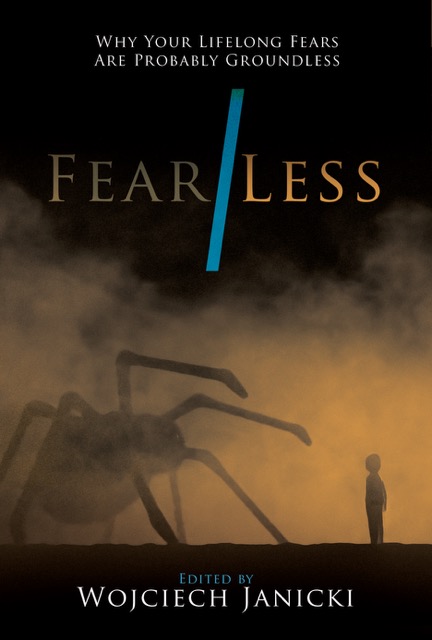Fear/Less:
Why Your Lifelong Fears Are Probably Groundless
View a short comment on the book by the author: https://youtu.be/koph4Y4EEsc
Here you will find the author’s 25-minute story about the book. You’ll learn more about its contents and why you should reach for it: https://youtu.be/mfsjBY61dHU
Meet the author in a podcast that has already gained 500 thousand views: https://tiny.pl/w1ngj (English subtitles)
If you like these stories, you may also like to see some more shorts regarding the book:
https://youtu.be/yvgkMqdfai4 – about horses in New York
https://youtu.be/9tVxvFuxknc – about evil sewage systems
https://youtu.be/pMwq89n-w6g – about dreadful trains
https://youtu.be/Idk9eQigmgA – about electricity that scares us
https://youtu.be/QRTBGEDcL90 – about the end of the world coming soon
https://youtu.be/6-rCMq9D1EQ – about nuclear energy
https://youtu.be/ofA7nfjpkS4 – about alleged overpopulation
https://youtu.be/fa0_VJo7zao – about peakoil that constantly comes
https://youtu.be/kvbdqImpkcI – about tomorrow that will be worse, of course
https://youtu.be/q-w3ZZPuV_M – about climate change
***
What is the book about?
In ancient times, our ancestors begged the gods for mercy as a solar eclipse occurred; they saw it as a sign of divine wrath. In the 19th century, trains and electricity sparked widespread fear of gruesome tragedies. New Yorkers predicted they would drown in manure as transportation by horse became common.
We look back in amusement, but they thought the end was near.
What do we fear today? Climate change, overpopulation, artificial intelligence, nuclear power, depletion of natural resources, the apocalypse as described in the Bible. And that’s just the beginning, with myriad other sources of high anxiety coming out of knowledge deficits and conspiracy theories.
Even though humans have solved problem after problem, averting the obliteration of the species, it is still widely believed that catastrophe is almost inevitable. Will there ever come a moment when we stop being unnecessarily afraid and treat successive threats as challenges rather than reasons to fear? What will the future bring? Do we really need to be afraid?
Publication date of July 10, 2024.


